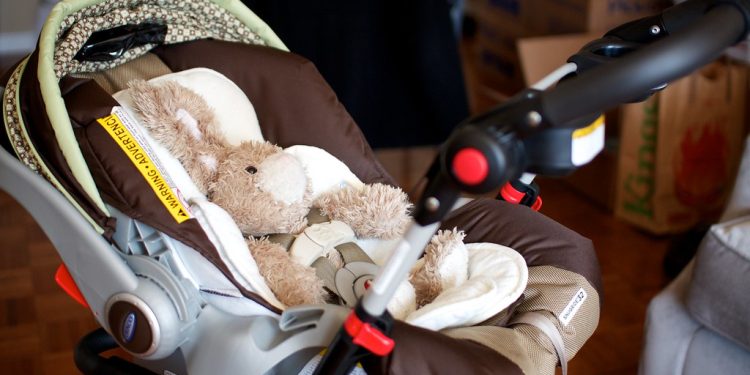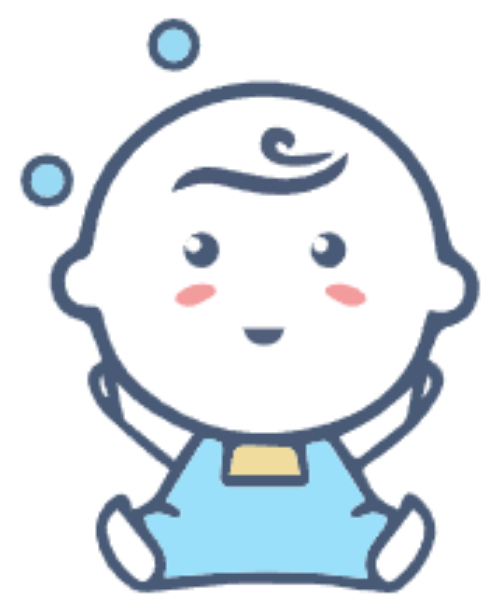As a new parent, it can be overwhelming to navigate the endless aisles of baby products and gear that promise to make life easier for you and your little one. With so many options available, it’s easy to feel like you need every gadget and accessory under the sun. But in reality, there are only a few essential items that you truly need to care for your baby. By focusing on the basics, you can create a safe, comfortable, and nurturing environment for your newborn without breaking the bank or cluttering your home. In this guide, we’ll explore the essential baby gear that every new parent should have.
1. A Safe Place to Sleep: Crib or Bassinet
One of the most important pieces of baby gear is a safe place for your baby to sleep. Whether you choose a crib or a bassinet, it’s essential that your baby has a designated sleep space that meets current safety standards. Cribs provide a long-term sleep solution that your baby can use well into toddlerhood, while bassinets are smaller and more portable, making them a convenient option for the first few months.
When choosing a crib or bassinet, look for one with a firm mattress that fits snugly, and make sure the crib meets all safety standards set by organizations like the Consumer Product Safety Commission (CPSC). Avoid adding soft bedding, pillows, or stuffed animals, as these can increase the risk of Sudden Infant Death Syndrome (SIDS). A fitted sheet is all your baby needs to sleep safely.
2. Car Seat: Safety on the Go
A car seat is a non-negotiable piece of baby gear that ensures your baby’s safety when traveling. From the moment you leave the hospital, your baby will need to be securely strapped into an infant car seat. It’s important to choose a car seat that fits your vehicle, meets current safety standards, and is appropriate for your baby’s age, weight, and height.
There are two main types of car seats for newborns: infant car seats and convertible car seats. Infant car seats are designed for younger babies and are easily detachable, allowing you to carry your baby without waking them up. Convertible car seats, on the other hand, can be used for a longer period of time, as they adjust to accommodate your growing child. Whichever type you choose, make sure to read the installation instructions carefully and have it installed correctly.
3. Diapering Essentials
Diapering is a big part of life with a newborn, and having the right diapering essentials will make the process much easier. Whether you choose disposable or cloth diapers, make sure you have enough on hand to get through those first few weeks. In addition to diapers, you’ll need wipes, diaper cream to prevent and treat diaper rash, and a changing pad or station where you can comfortably change your baby.
For convenience, consider setting up a diaper caddy that holds all of your diapering essentials in one place. This way, you’ll always have diapers, wipes, and cream within reach. It’s also a good idea to have a diaper pail or a trash can with a lid nearby to contain the smell of used diapers.
4. Baby Clothes: Keep It Simple
When it comes to clothing, it’s tempting to buy all the cute outfits you see, but in reality, your baby doesn’t need an extensive wardrobe. Babies grow quickly, and comfort is key. Stick to a few essential items, such as onesies, sleepers, and footed pajamas. Opt for soft, breathable fabrics like cotton, and choose clothing that’s easy to put on and take off.
In addition to onesies and sleepers, consider having a few swaddles on hand. Swaddling can help your baby feel secure and sleep more comfortably, especially during the first few months. Blankets, hats, and mittens are also useful for keeping your baby warm, but you don’t need an excessive number—just a few basics will do.
5. Feeding Essentials
Feeding your baby, whether you choose to breastfeed or formula feed, requires a few essential items to make the process more comfortable for both you and your baby. If you’re breastfeeding, consider investing in a comfortable nursing pillow to support your baby during feedings, as well as nursing pads to prevent leaks. A breast pump can also be helpful if you plan to express milk, whether for convenience or to build a supply for when you’re away.
If you’re formula feeding, you’ll need bottles, nipples, and a formula that works for your baby. It’s a good idea to have a bottle brush for cleaning bottles and a bottle warmer to quickly warm your baby’s milk to the right temperature. Don’t forget to burp cloths—babies tend to spit up after feedings, and having a few absorbent cloths on hand will help keep you and your baby clean.
6. Baby Carrier or Stroller
A baby carrier or stroller is essential for getting out and about with your baby. Baby carriers allow you to keep your baby close while keeping your hands free, making them perfect for running errands or going for walks. Choose a carrier that provides proper support for your baby’s hips and spine, and make sure it’s comfortable for you to wear.
Strollers are also useful, especially if you plan to take your baby on longer walks or outings. Look for a stroller that’s easy to maneuver, lightweight, and fits your lifestyle. Some strollers are compatible with infant car seats, allowing you to easily transition from car to stroller without waking your baby.
7. Bathing Essentials
Bathing a newborn can feel intimidating at first, but having the right essentials can make it easier and more enjoyable. A baby bathtub or a bath support seat is a great option for keeping your baby safe and secure during bath time. Use a gentle, fragrance-free baby soap and a soft washcloth to clean your baby’s skin, and always keep one hand on your baby for safety.
After the bath, wrap your baby in a soft, hooded towel to keep them warm. Applying a gentle baby lotion can help keep your baby’s skin soft and prevent dryness. Bath time can be a great bonding experience, and with the right gear, you’ll feel more confident as you care for your baby.
8. Sleep and Comfort Items
Newborns sleep a lot, and having a few comfort items can help create a safe and soothing sleep environment. Swaddle blankets are great for helping your baby feel secure, while a white noise machine can provide calming background sounds that help your baby sleep more soundly.
Pacifiers can also be helpful for soothing your baby, especially during sleep. If you choose to use a pacifier, make sure it’s appropriate for your baby’s age and that it’s cleaned regularly. A nightlight can also be useful for nighttime feedings and diaper changes, allowing you to see without fully waking your baby.
9. First Aid and Health Essentials
It’s important to have a few health and first aid essentials on hand for your baby. A digital thermometer is a must for monitoring your baby’s temperature if they seem unwell. You’ll also want to have baby nail clippers or a nail file to keep your baby’s nails short and prevent accidental scratches.
A nasal aspirator or bulb syringe is helpful for clearing your baby’s nasal passages, especially during a cold. Baby-safe saline drops can also help loosen mucus and make breathing easier. It’s a good idea to have an infant first aid kit with essentials like bandages, gauze, and an infant pain reliever (as recommended by your pediatrician).













